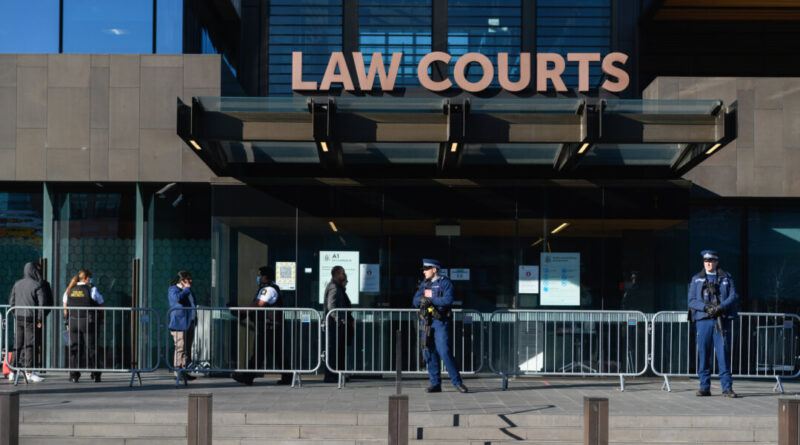New Zealand High Court Reverses Airport Assault Conviction of Vaccine Critic
The court deliberated on whether gently placing a hand on a person’s shoulder justified a conviction.
New Zealand’s High Court overturned the assault conviction of Liz Gunn, a television host who became a prominent protester against COVID mandates and lockdowns.
Gunn, whose real name is Elizabeth Jane Cooney, was found guilty in May last year of assaulting an airport worker following an incident at Auckland Airport.
Before her TV career, Gunn worked as a litigation lawyer starting in 1992. She became a co-host of TVNZ’s Breakfast show but unexpectedly quit that role live on-air in 1997. In the 2020s, she became a leading vaccine sceptic in New Zealand and founded the NZ Loyal political party, which unsuccessfully contested the 2023 election.
During an incident at the airport in that year, Gunn and a cameraman were filming an interview when they were approached by a security guard. The guard informed them that commercial filming inside the airport required a permit, but the pair refused, arguing that they were filming a video of friends without making any profit.
During the altercation, Gunn placed a hand on the guard’s shoulder. The court later heard that this caused a “sharp pain,” but Gunn argued it was a gentle touch rather than assault. Police were called, and CCTV footage showed that within 18 seconds, Gunn and her cameraman were arrested and fell to the ground.
In court, Gunn claimed that she was actually assaulted by one of the police officers, resulting in a fractured wrist. Despite her claims, she was found guilty.
In November, a judge convicted and discharged Gunn of assault charges and dismissed trespass charges, citing lack of warning to leave the airport.
Feeling the conviction was unwarranted, Gunn appealed to the High Court.
The judge noted that Gunn’s contact with the security guard’s arm was “fleeting.”
Justice Peters stated that even if she had not allowed the appeal against the conviction, she would have still permitted an appeal against the decision not to discharge Gunn without conviction.
“The incident between Ms. Gunn and [the guard] was minor. It was undisputed in the District Court and remains so on appeal that any wrongdoing was minimal at best.
“A criminal conviction carries a social stigma. Many in the community may not view ‘assault’ to include a brief touch like the one that took place in this instance. Moreover, this stigma is particularly significant here as Ms. Gunn, in her 60s, has an otherwise clean record.”





